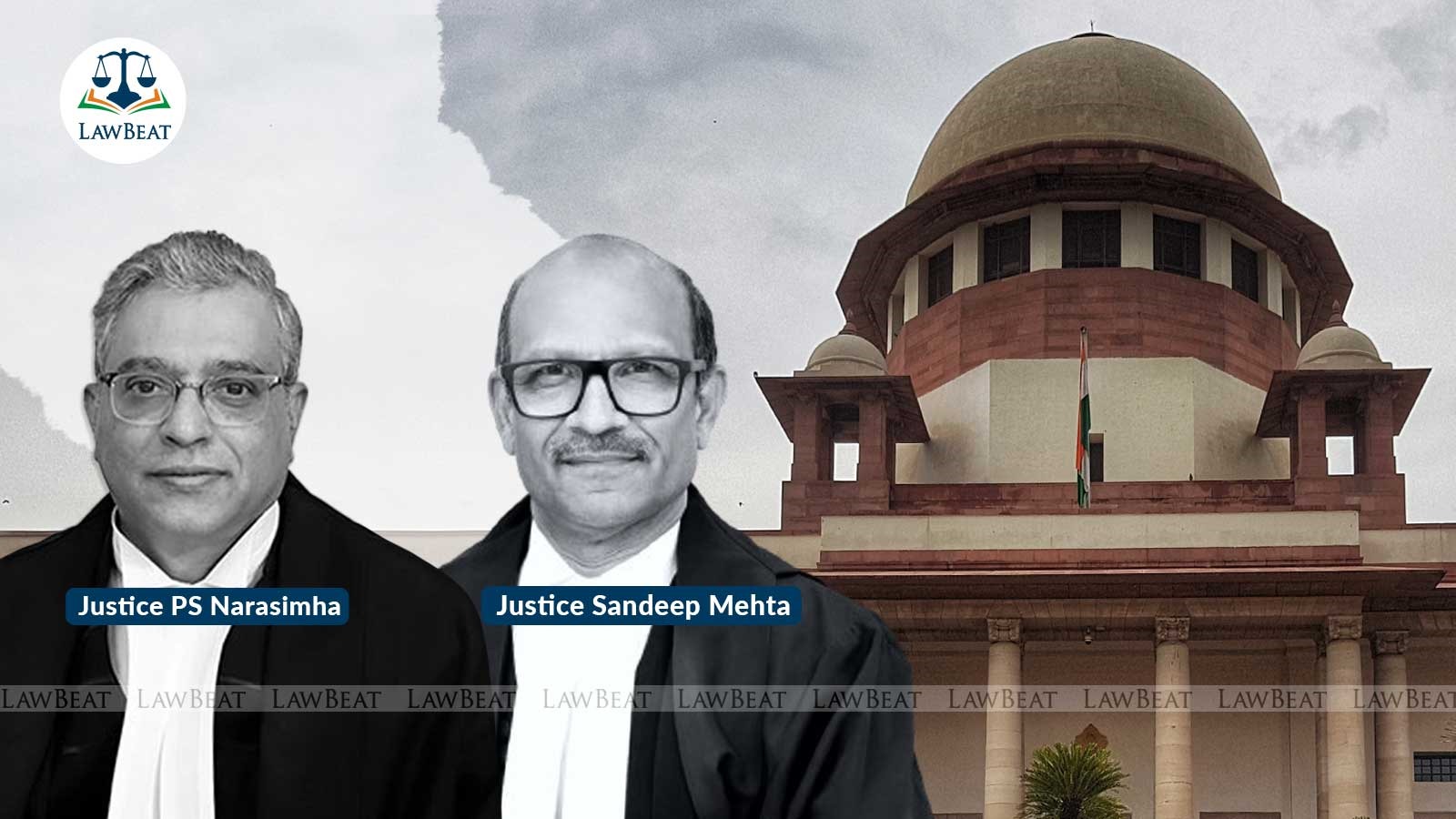Recording Evidence Mandatory in Disciplinary Cases Involving Major Punishment: SC Restores Tribunal Order Favoring UP Tax Officer

Court held that the High Court fell into grave error of law while interfering in the well-reasoned judgment rendered by the Tribunal which had quashed the order imposing a penalty upon the appellant
The Supreme Court on November 18, 2024 emphasised that recording of evidence in a disciplinary proceeding proposing charges of a major punishment is mandatory and mere production of documents is not enough.
A bench comprising Justices P.S. Narasimha and Sandeep Mehta set aside a July 30, 2018, Allahabad High Court judgment, reinstating the decision of the Uttar Pradesh Public Services Tribunal. The tribunal had quashed an order imposing a censure entry and withholding two grade increments for Satyendra Singh, who was serving as Assistant Commissioner, Commercial Tax, Ghaziabad.
The top court held that the proceedings conducted against the officer were vitiated and were non-est in the eyes of law.
Referring to the Uttar Pradesh Government Servant (Discipline and Appeal) Rules, 1999, the bench noted that there was no dispute amongst the parties that the penalty that had been imposed upon the appellant was a major penalty.
The court pointed out that Rule 7 (vii) of the Rules of 1999, clearly stipulates that where a government servant denies the charge, the Inquiry Officer shall proceed to call the witness proposed in the charge sheet and record their oral evidence in the presence of the charged government servant who shall be given opportunity to cross-examine such witness.
After recording the evidence, the Inquiry Officer shall call and record the oral evidence that the charged government servant desires in his written statement to be produced in his defence. Hence, recording of oral evidence in support of charges against Government servant is a mandate under Sub-rule (vii) of Rule 7 of the Rules of 1999, when the inquiry being conducted proposes imposition of a major penalty, the bench noted.
"On a minute appraisal of the Inquiry Report, it is evident that other than referring to the documents pursuant to the so-called irregular transactions constituting the basis of the inquiry, the Inquiry Officer failed to record the evidence of even a single witness in order to establish the charges against the appellant," the bench said.
The bench also pointed out that the top court in a catena of judgments has held that the recording of evidence in a disciplinary proceeding proposing charges of a major punishment is mandatory.
"Even in an ex-parte inquiry, it is sine qua non to record the evidence of the witnesses for proving the charges," the bench said.
Having tested the facts of the case at hand on the touchstone of the Rules of 1999, and the law as expounded by the court in other cases, the bench said, "We are of the firm view that the inquiry proceedings conducted against the appellant pertaining to charges punishable with major penalty, were totally vitiated and non-est in the eyes of law since no oral evidence whatsoever was recorded by the department in support of the charges".
It held that the High Court fell into grave error of law while interfering in the well-reasoned judgment rendered by the Tribunal which had quashed the order imposing penalty upon the appellant.
The court directed that the monetary benefit flowing from the present order should be paid to the appellant within a period of two months, failing which, the said amount would carry interest at the rate of 6% per annum.
In his arguments, the appellant contended that the inquiry proceedings conducted against the appellant were in gross dereliction of Rule 7(3) of the Uttar Pradesh Government Servant (Discipline and Appeal) Rules, 1999. The disciplinary proceedings were initiated and allegations constituting major penalty were proposed by Inquiry Officer. Since the appellant had emphatically denied the charges, it was incumbent upon the Inquiry Officer to have recorded evidence to establish the charges attributed to the appellant.
However, admittedly, not a single witness was examined by the Inquiry Officer to bring home the charges, and thus, the inquiry report is non est in the eyes of law, he said.
The state counsel, on the other hand, contended that the appellant did not seriously challenge the findings of the Inquiry Officer in the Inquiry Report. The reply submitted by the appellant was considered by the Disciplinary Authority and after due application of mind, the Disciplinary Authority passed a well-reasoned order on November 5, 2014 imposing the penalty against the appellant.
He submitted that the High Court exercised the jurisdiction conferred upon it by virtue of Article 226 of the Constitution by proper consideration of the material available on record and hence, the Supreme Court should not interfere with the impugned judgment rendered by the High Court.
The court, however, did not agree to the state counsel's submission and set aside the High Court's order.
Case Title: Satyendra Singh Vs State of Uttar Pradesh & Anr
